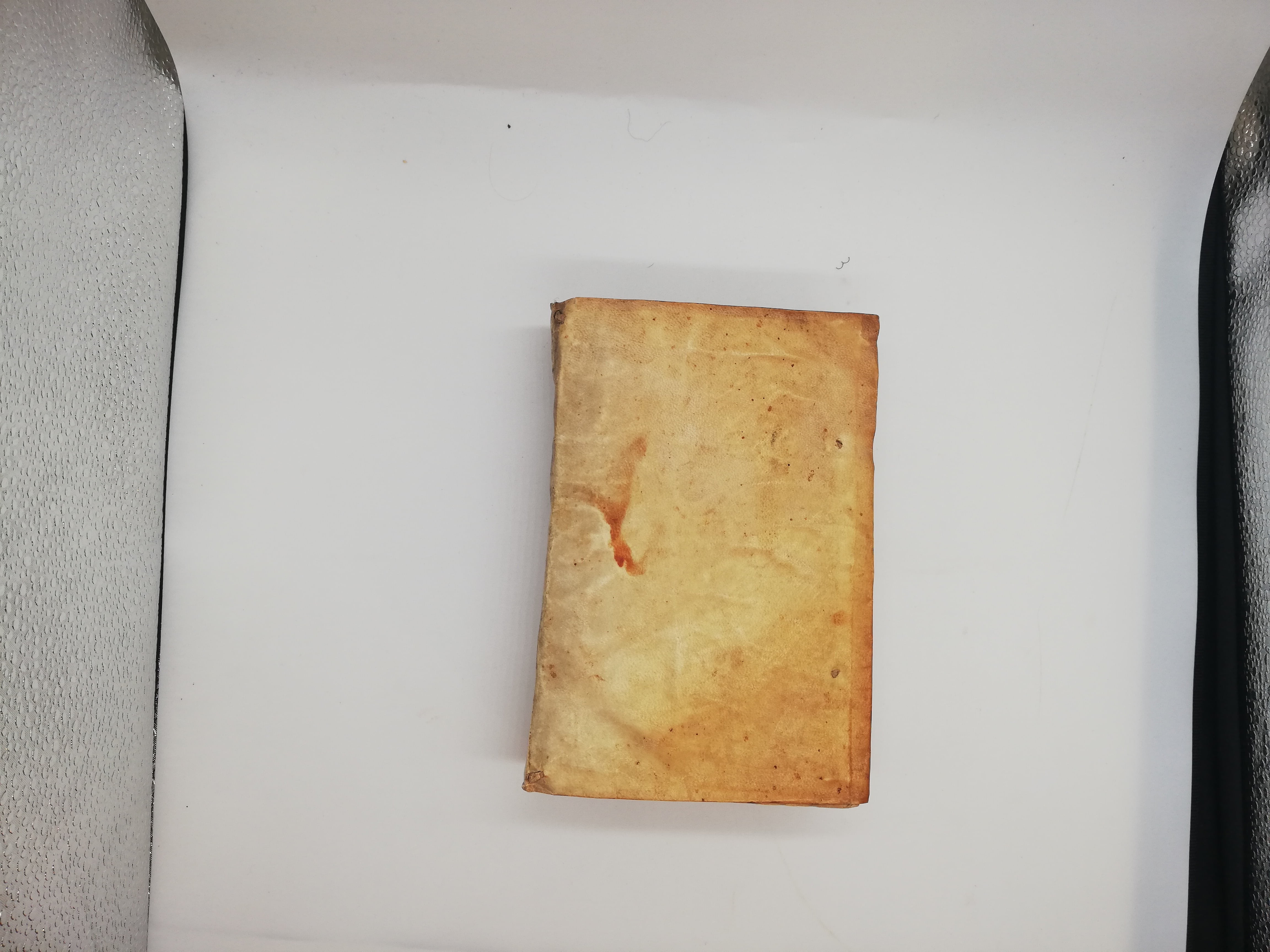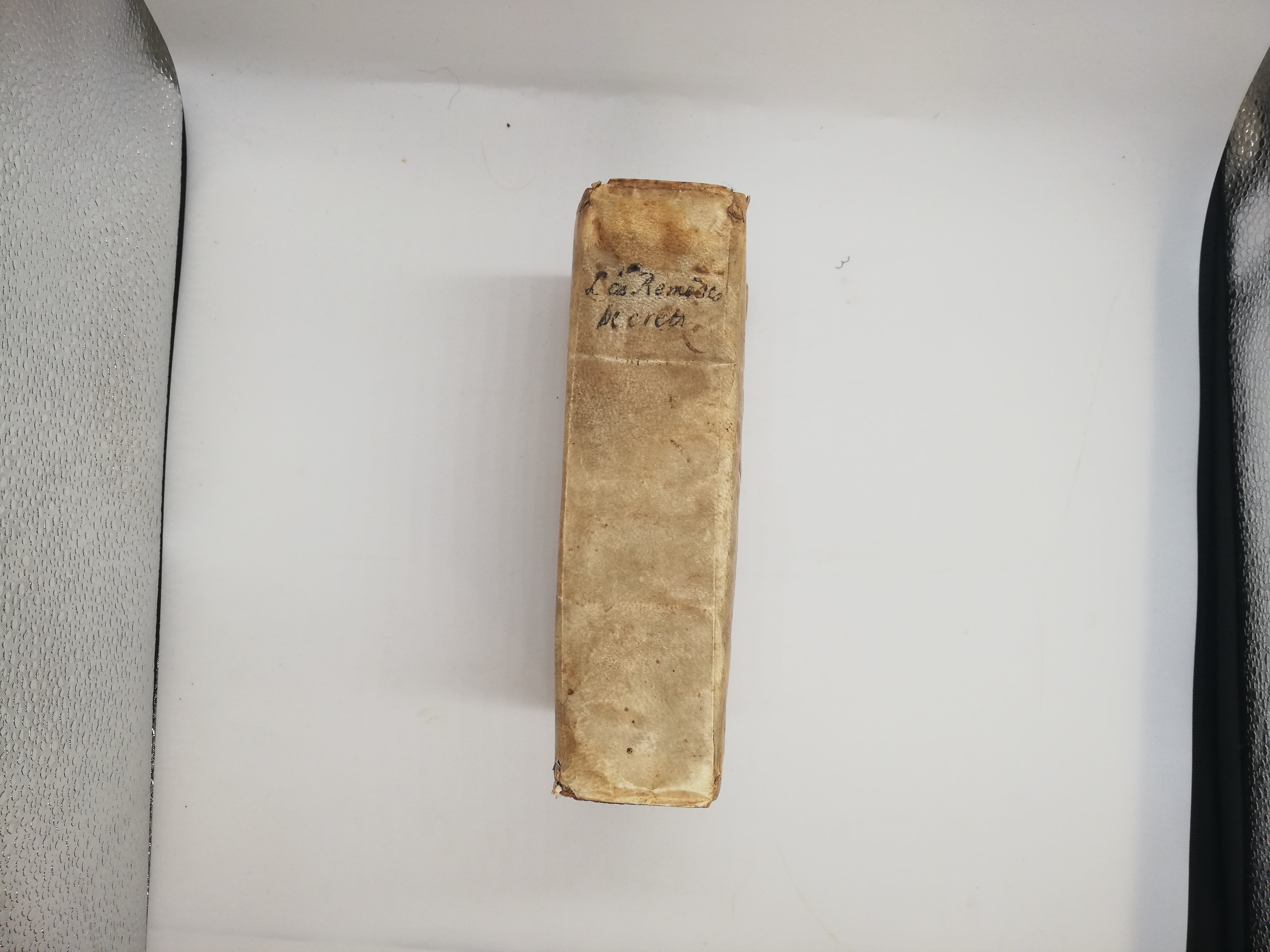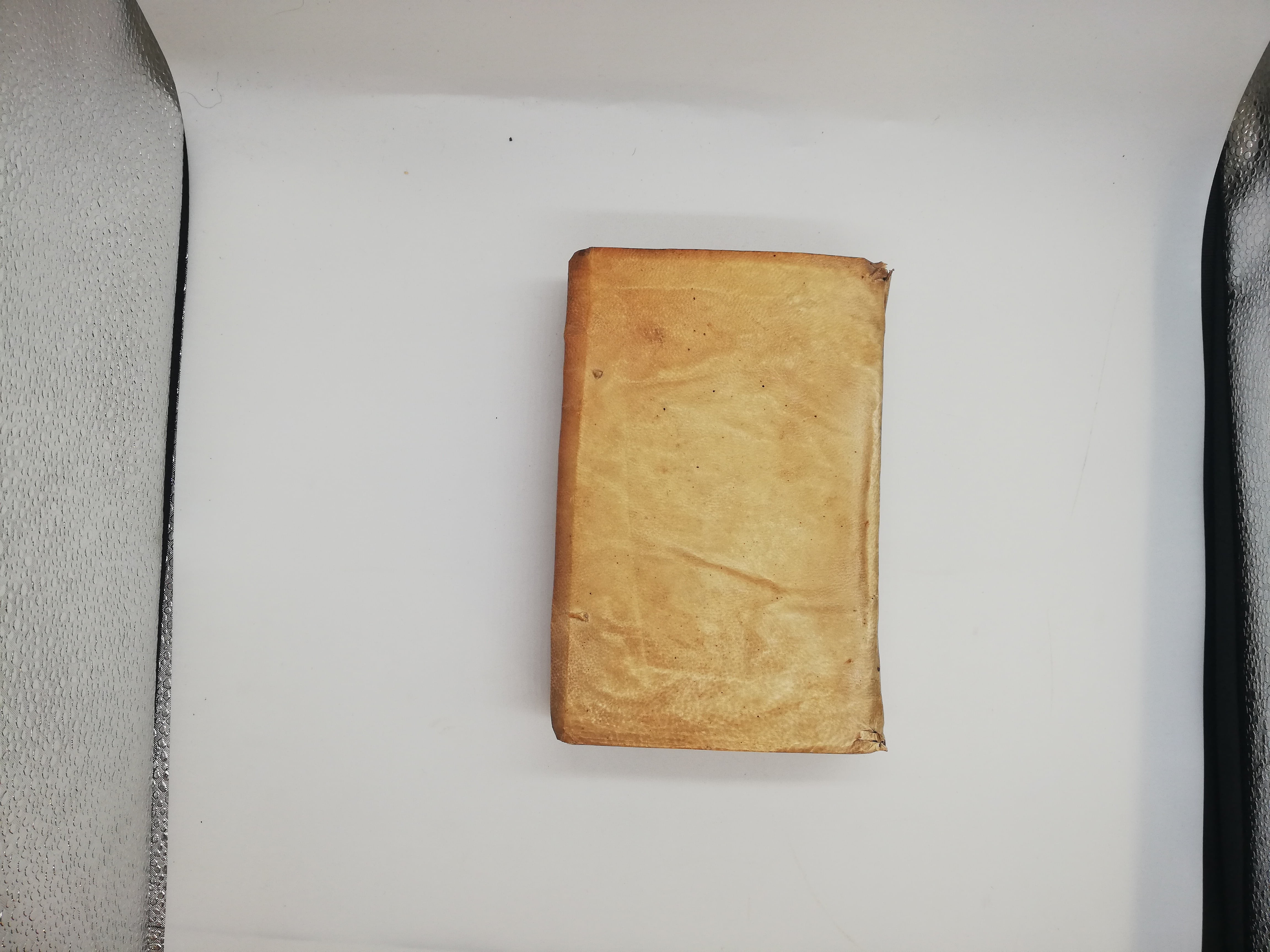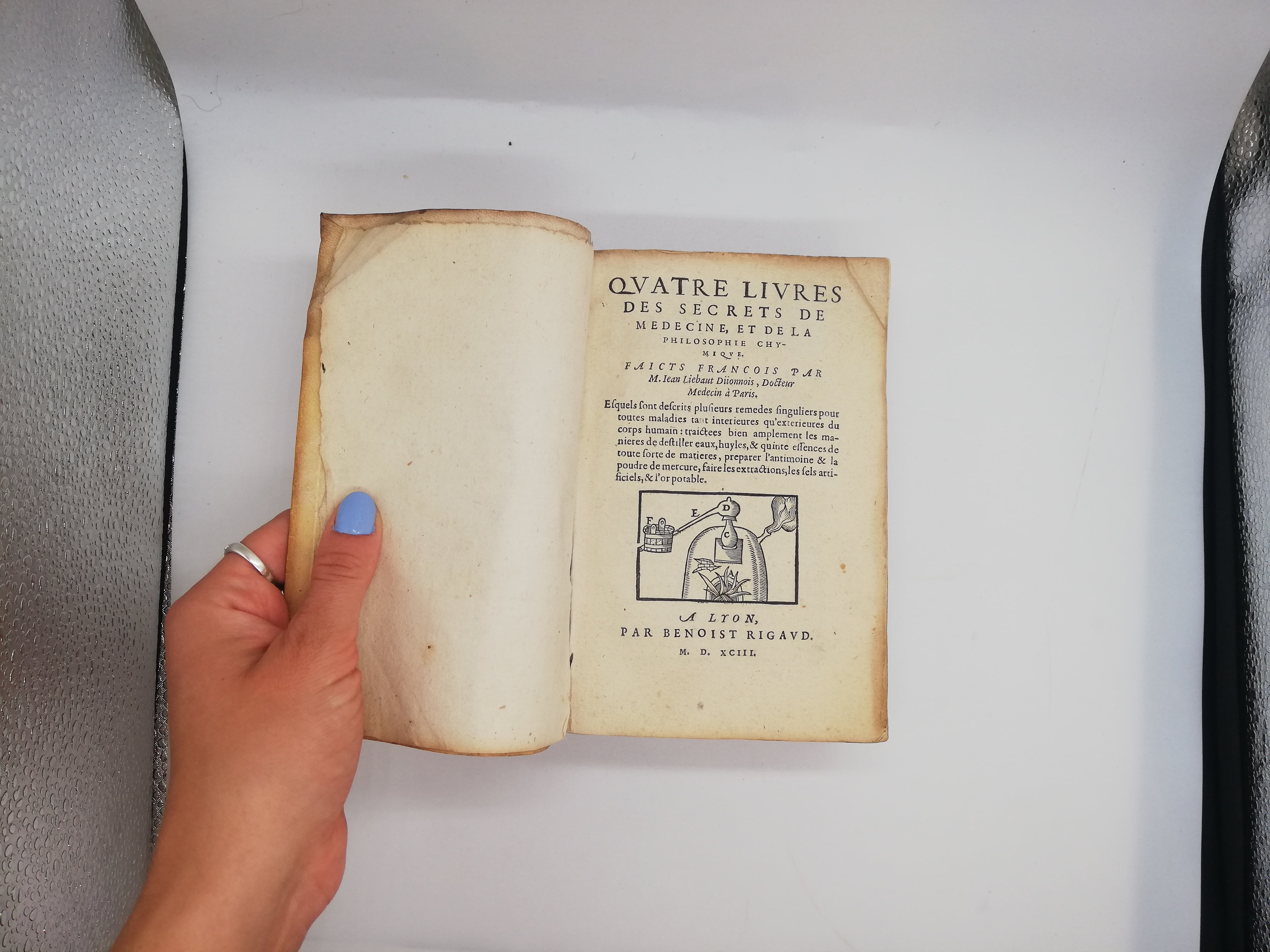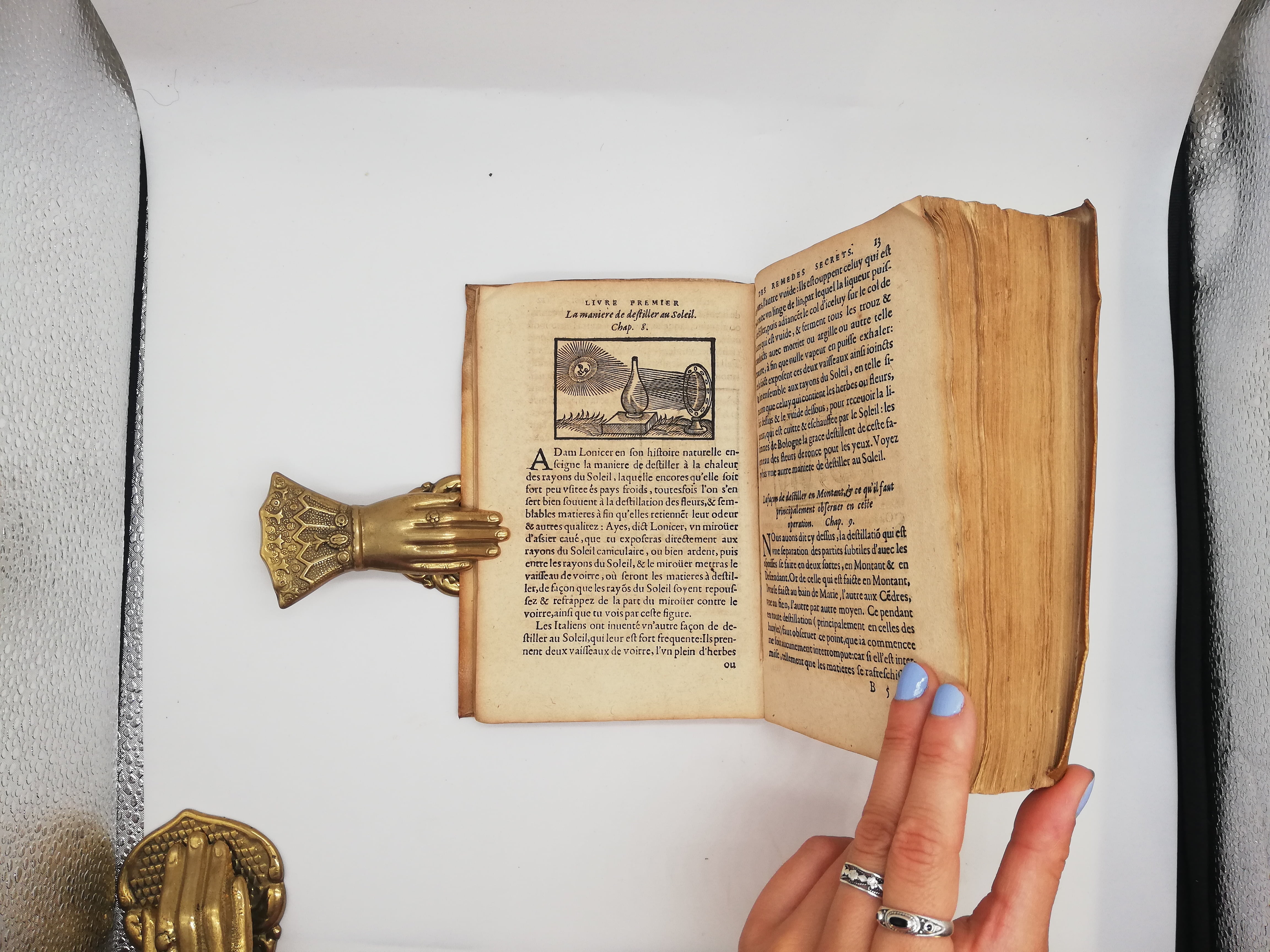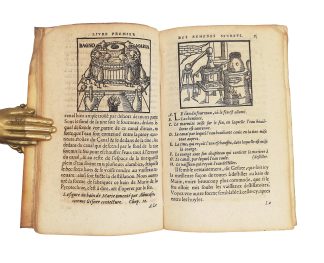LIÉBAULT, Jean.
Quatre Livres des Secrets de Medecine, et de la Philosophie Chymique.
Lyon, Benoist Rigaud, 1593£4,950.00
8vo. Ff. (vii) 293 (xv). Roman letter. Woodcut to tp of alchemical experiment, ornamental and historiated head and tail pieces and initials, charming woodcuts demonstrating chemical and alchemical equipment within text. Slight age yellowing, occasional rust and oil spots, repaired tear to fol. 290 touching edge of woodcut recto and with loss of a letter on verso, page flaw to one blank outer corner, a few leaves uncut. A good, clean copy in contemp. vellum, lacking ties.
Important work that marks the beginning of Paracelsian chemical medicine in France by the renowned doctor and agronomist, Jean Liébault (1535-1596), husband of Renaissance feminist poet Nicole Estienne (c. 1542-1588) and son in law of revered medical writer Charles Estienne (1504-1564). This work builds on the tradition laid out by Hieronymus Brunschwig, Philipp Ulstad and Conrad Gesner, discussing techniques of distillation using a variety of substances including oil, brandy, mercury and gold. It derives heavily from Gesner’s ‘Theasaurus De remediis secretis’ and involves a great deal of reference to Galenic medical practices. Liébault recommends the distillation and consumption of mercury, vitriol and antimony, claiming that distilling them reduces their toxicity and increases their many health benefits. This text was published shortly after the Paris Faculty of Medicine condemned such practices.
Liébault begins by defining distillation and reviewing its accepted and varied techniques, e.g. by bain-marie or under the sun. He then discusses a number of distillates, for example tormentil (a herbaceous plant), and claims it is beneficial for ulcers, fistulas, internal wounds, dropsy and fevers. He goes on to mention other ‘distillates’ like eggs, turtles, partridges, snakes, blood and even human excrement. Gesner was the first to define essential oils as the oily substances that emerges from some organic materials following distillation. Liébault continues extolling the virtues of distilling aromatic plants like rosemary flowers and states administration of the oil can strengthen the heart and improve the memory.
Prior to its employment as a recreational beverage, brandy and other alcohols were used purely by apothecaries and surgeons in their procedures, otherwise known as “fiery water”. Liébault claims that brandy can break internal abscesses if drunk, can help with redness of the eyes and restrict tears. His next section is probably the most notorious. Metallic substances are recommended to be distilled and consumed. Mercury is said to aid the lesions incurred by syphilis, and potable gold, a liquid solution containing gold, is declared to bring joy to the heart, delay old age, cure leprosy and prevent hair loss. He does take time to discuss the many sceptics of this method, but concludes by stating they are all liars.
Brunet III 1073; Wellcome 3804; Not in Adams, BM STC. Fr, Garrison & Morton, Osler, NLM, or Heirs of Hippocrates.In stock



